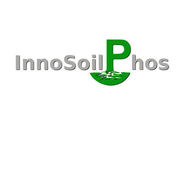doi:10.1007/978-981-10-8031-9_29
Abstract
Bone char is the product of a thermochemical conversion of defatted bones. This chapter summarizes the state of the art in the technical pyrolysis process, resulting physicochemical properties and other characteristics of bone chars and possible applications. Special emphasis is put on the solubility of P compounds, which in general characterize bone chars as potentially slow-release P fertilizers. The P release into soil can be improved by an “internal activation” through adsorption of reduced S compounds. Other agronomically relevant properties originate from the porosity that promotes water retention and the habitat function for soil microorganisms. Bone char effects on crop yields are summarized, giving the impression that field crops with long vegetation period and intensive rooting systems benefit most from this material. In conclusion, the carbonization by pyrolysis and formulation of bone char-based products is a reasonable approach in the recycling of P-rich bones from slaughterhouses. However, longer-term agronomic trials are required to fully evaluate the fertilizer potential of bone chars.
